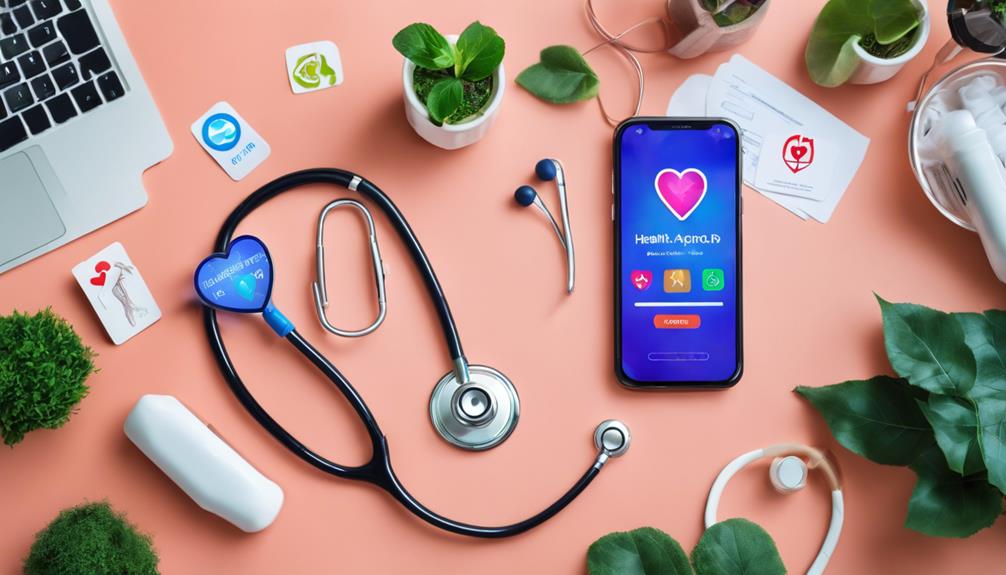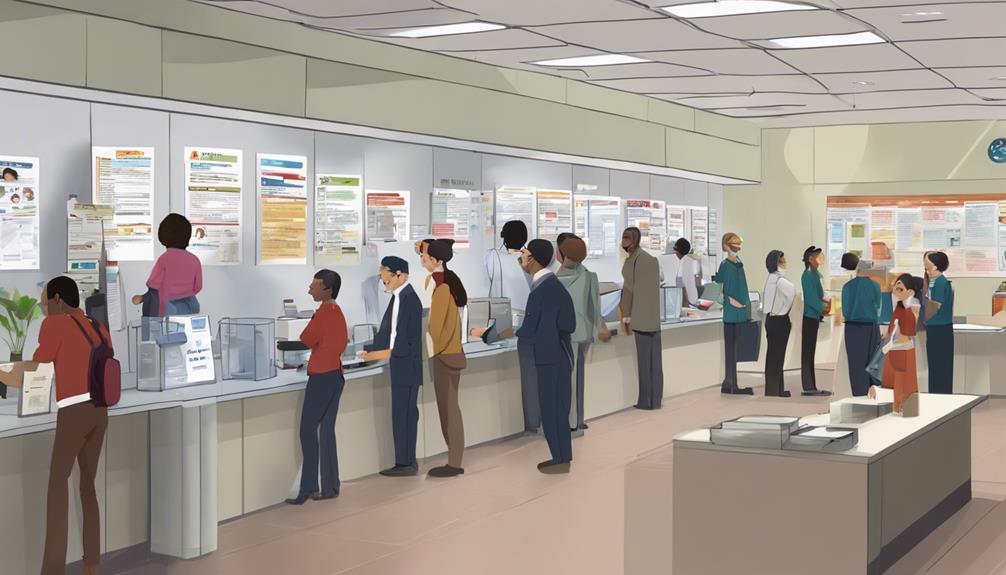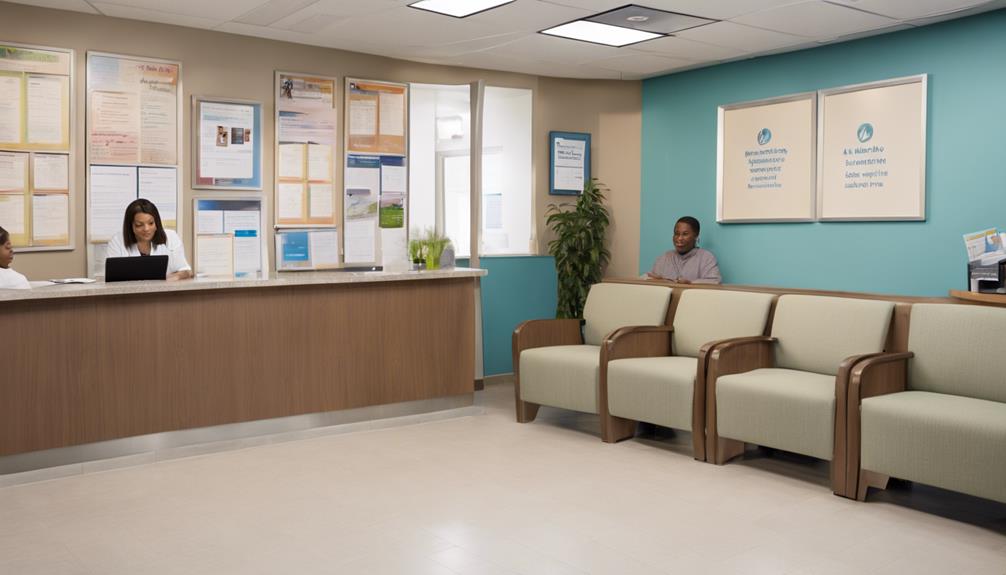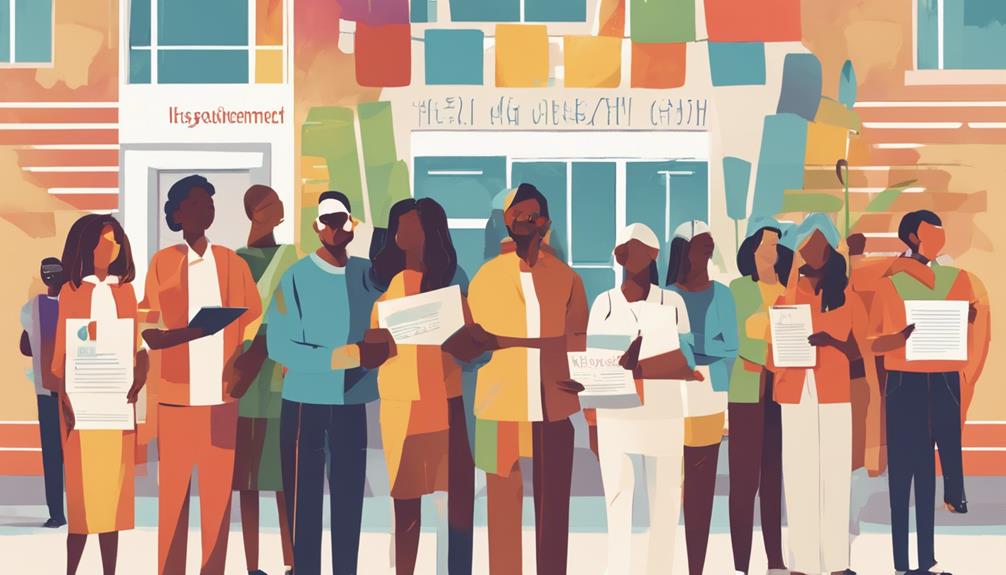You can apply for a health card in a few easy ways. One option is to visit your local government office or community health center, where staff will help you through the process. If you prefer, apply online via the official website, where you can create an account and submit your application anytime. Mobile apps also make it simple to fill out forms and upload documents directly from your phone. Just make sure you have the necessary identification and residency proof. There's even more to discover about the requirements and resources available to assist you along the way.
Online Application Process

You can easily apply for a health card online by visiting the official website and following the step-by-step instructions provided. The process is designed to be user-friendly, ensuring you can navigate it with ease. First, you'll need to create an account or log in if you already have one. Once you're in, gather your personal information, including identification and proof of residence, as you'll need to upload these documents.How Much Is Yoga Teacher TrainingWhat Is Hot Power Fusion YogaWhere Health Center
One of the key application benefits of using the online system is speed. You'll often receive a confirmation email shortly after submitting your application, streamlining the process greatly. Plus, with digital health initiatives, you can check your application status online at any time. This transparency keeps you informed without the hassle of waiting for phone calls or letters.
Additionally, applying online reduces paper usage, contributing to environmental sustainability. You can also access your health card digitally once approved, saving you time and effort. Overall, the online application process not only simplifies obtaining your health card but also aligns with modern digital health practices, making it an efficient choice.
In-Person Application Locations
If you prefer to apply for your health card in person, there are several convenient locations where you can do so.
You can visit local government offices, community health centers, or designated enrollment locations.
Each of these places is equipped to assist you with your application process.
Local Government Offices
Local government offices serve as convenient locations where residents can apply for a health card in person. These offices typically have staff trained to guide you through the application process and answer any questions you might have. When you visit, you'll need to bring necessary identification and documentation to verify your eligibility.
One of the key application benefits of using local government offices is the direct support they offer. You can receive assistance tailored to your specific situation, making it easier to navigate any complexities. Additionally, local outreach initiatives often provide information about available health services, ensuring you understand all your options.
Another advantage is the accessibility of these offices, usually located within your community. This means you won't have to travel far, saving you time and effort. By applying in person, you can also complete your application on the spot, avoiding potential delays associated with online submissions.
Community Health Centers
Community health centers provide another accessible option for residents to apply for a health card in person, often offering a welcoming atmosphere and knowledgeable staff ready to assist. These centers are strategically located to guarantee that you can easily access the services you need. When you visit, you'll find staff who understand the importance of outreach strategies, helping to connect you with resources to navigate your health care options.
As part of their commitment to community health, these centers frequently conduct impact assessments to evaluate the effectiveness of their services. This means they're not just focused on processing applications but also on guaranteeing that you receive the support necessary to make informed decisions about your health.
You can typically find a range of services at community health centers, including assistance with applying for a health card, health screenings, and educational resources. By choosing to apply at one of these locations, you're taking a proactive step towards better health access while benefiting from the expertise of a caring team dedicated to your well-being.
Don't hesitate to reach out and ask questions; they're there to help you every step of the way!
Designated Enrollment Locations
Designated enrollment locations offer convenient in-person options for you to apply for a health card, guaranteeing that assistance is readily available when you need it. These locations are part of broader enrollment outreach strategies aimed at making the application process as accessible as possible. By collaborating with local organizations, designated enrollment partnerships provide you with knowledgeable staff who can guide you through the application process effectively.
When you visit a designated enrollment location, you'll find a welcoming environment where you can ask questions and receive personalized support. These sites often host events that cater to specific communities, making it easier for you to find the help you need, whether you're applying for the first time or renewing your coverage.
To locate a designated enrollment location near you, check online resources or contact your local health department. They can guide you to the nearest site and inform you about any upcoming enrollment events. Remember, taking advantage of these in-person options can simplify your application experience and guarantee you have the coverage you need for your health and well-being.
Mobile Application Options

Several mobile applications can streamline your health card application process, making it easier to manage your healthcare needs. These apps often come packed with valuable mobile app features designed to enhance your user experience. For instance, you can fill out forms directly on your smartphone, saving time and reducing the hassle of paperwork.
Many applications also allow you to upload necessary documents, like proof of identification or residency, right from your device. This means no more trips to the post office or waiting in long lines. Additionally, notifications and reminders help you stay on top of deadlines, ensuring you never miss an important date.
User-friendly interfaces make traversing these apps intuitive, so you won't need to spend hours figuring them out. You can easily track your application status in real-time, giving you peace of mind. Some apps even offer virtual assistance or chat features, allowing you to get answers to your questions quickly.
Community Health Centers
Local health services, like community health centers, play an essential role in assisting you with your health card application and providing ongoing healthcare support. These centers are designed to meet the needs of your community, ensuring you have access to crucial health services. When you visit a community health center, you'll often find staff ready to help you navigate the health card application process, making it easier for you to receive the care you need.
Community engagement is a cornerstone of these centers. They actively involve local residents in decision-making processes, making sure that services reflect the specific needs of the population. This engagement not only strengthens the health services provided but also fosters a sense of belonging within your community.
Additionally, community health centers focus on health education, empowering you with knowledge about various health topics. You can take advantage of workshops, seminars, and one-on-one counseling sessions that equip you with the tools you need for better health management.
In these ways, community health centers serve as a crucial resource, helping you maintain your health and navigate the often-complex healthcare system effectively.
Government Offices

When applying for a health card, you'll need to understand the role of government offices in the process.
These offices outline eligibility requirements and guide you through each step of the application.
Knowing what to expect can make your experience smoother and more efficient.
Eligibility Requirements Overview
To qualify for a health card, you must meet specific eligibility requirements set by government offices. These requirements can vary by region, but generally, you'll need to demonstrate your residency, income level, and sometimes your age or disability status.
First, confirm you're a resident of the area where you're applying. Government offices typically require proof of residency, such as a utility bill or lease agreement.
Next, your income level plays an essential role in determining your eligibility for health coverage. Many programs are designed for low-income individuals or families, so you'll likely need to provide financial documentation, like pay stubs or tax returns.
In some cases, you might also need to meet age or disability criteria. For instance, certain health programs cater specifically to children, seniors, or individuals with disabilities.
Understanding these eligibility requirements is significant, as they directly affect your application benefits. By meeting these criteria, you can access essential health services that improve your well-being and guarantee you receive the necessary care.
Application Process Steps
Maneuvering the application process for a health card involves several key steps that guarantee you submit everything needed for approval.
First, confirm that you meet the eligibility criteria. This usually includes residency status, income level, and identification documents. Check your local government's website for specific requirements in your area.
Next, gather the necessary documents. This often includes proof of income, identification (like a driver's license), and residency verification. Make sure everything is current and accurate to avoid delays.
Once your documents are in order, visit the designated government office or apply online, if available. It's a good idea to bring copies of all your documents, as you may need to submit them for verification.
During your visit, follow these application tips: be polite, ask questions if you're unsure, and take notes on any instructions given.
After submitting your application, keep track of your submission date and any reference number provided. This helps you follow up if needed.
Eligibility Requirements
Eligibility for a health card typically requires you to meet specific criteria related to age, residency, and income level.
First, most programs require you to be a resident of the state or country where you're applying. This means you'll need to provide proof of your residence, often through documents like utility bills or lease agreements.
Next, age plays an essential role as some health card programs cater to specific age groups, such as children or seniors. You'll want to check if your age qualifies you for any specialized health benefits.
Income level is another significant factor. Many health card programs aim to assist individuals and families with limited financial resources. You may need to provide documentation of your income to demonstrate your eligibility for financial assistance. Generally, household income must fall below a certain threshold to qualify.
Once you confirm you meet these criteria, you'll be ready to proceed with your application. Remember, understanding these eligibility requirements will help you navigate the process more effectively and secure the health benefits you need.
Assistance and Resources

Finding assistance and resources for your health card application can greatly ease the process and guarantee you receive the benefits you're entitled to.
Start by exploring local healthcare resources, such as community health centers and non-profit organizations, which often provide guidance for applicants. They can help you understand the specific requirements and offer support in filling out forms.
If you're facing financial difficulties, don't hesitate to seek financial assistance programs available in your area. Many states offer initiatives aimed at helping low-income individuals obtain health cards. These programs can help you navigate the application process and may even cover costs associated with healthcare services.
Additionally, online resources can be invaluable. Websites dedicated to public health services often have sections for frequently asked questions, application guides, and even live chat options to assist you.
Conclusion
To sum up, applying for a health card is straightforward, whether you choose to do it online, in person, or via mobile options.
Make sure you meet the eligibility requirements and visit community health centers or government offices for assistance.
Don't hesitate to reach out for resources available in your area to help guide you through the process.
With the right information, you can secure the health coverage you need to stay healthy and supported.
